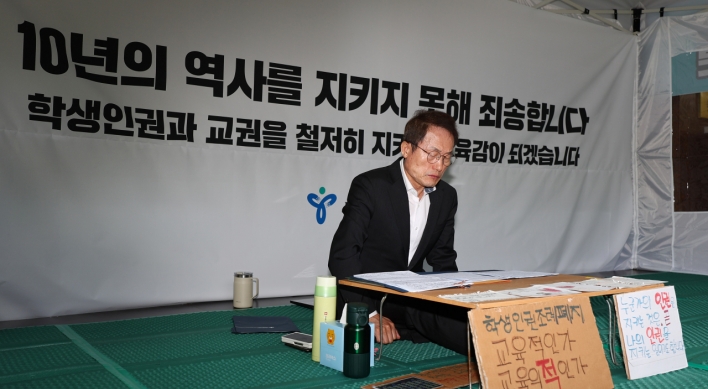[Editorial] FTAs ratification
Parliament should be quick to approve trade deals
By KH디지털2Published : Sept. 2, 2015 - 17:48
Data released Tuesday by the Ministry of Trade, Industry and Energy showed Korea’s exports shrank at the steepest pace in six years in August, marking the eighth consecutive month of decline. Shipments abroad reached $39 billion in August, down 14.7 percent from the same month in 2014, the largest on-year drop since August 2009, when the country’s exports plunged 20.9 percent from a year earlier.
The plunge in exports, the key growth engine of Asia’s fourth-largest economy, was largely attributed to a global economic slowdown, falling international oil prices and currency fluctuations.
Trade Ministry officials say overseas shipments are likely to show a slight recovery in the fourth quarter on the back of an increase in deliveries of ships and launches of new cars. Even so, it is still difficult to see exports keeping an upward trend over the long term, as unfavorable conditions are set to continue to weigh on local exporters.
It is not reassuring to hear that Korea posted a trade surplus for the 43rd consecutive month in August, as imports dropped at a faster rate of 18.3 percent from a year earlier, to $35 billion.
Reflecting their deepening concern over the country’s slumping exports and trade as a whole, more than 40 Korean business organizations urged the parliament Sunday to quickly approve free trade agreements with China, Vietnam and New Zealand.
In June, Korea and China signed a bilateral free trade deal to eliminate most tariffs over the next two decades. Korea inked FTAs with Vietnam and New Zealand in May and November, respectively.
If the trade accords with the three countries come into force this year, Korean companies will benefit from reduced tariffs twice -- on the implementation date and on Jan. 1 next year, the 42 business bodies said in an official letter to the National Assembly.
The early implementation of the free trade deal with China, in particular, will hopefully help Korean enterprises tap deeper into the world’s No. 2 economy. The country’s shipments to China, the world’s single largest market for Korean products, dropped 8.8 percent on-year in August.
Vietnam overtook Japan as the fourth-largest destination for Korean exports in the first seven months of this year, due mainly to increased shipments of intermediary goods. Putting a bilateral FTA into practice will further accelerate Korea’s exports to the Southeast Asian nation.
Implementing a free trade pact with New Zealand will serve to increase the country’s commerce with various parts of the world other than its bigger trading partners.
Economic policymakers are now focusing on boosting domestic consumption to reach this year’s growth target of 3 percent. But reversing the downturn in exports will be essential to achieve proper levels of growth.
The Assembly, which began its 100-day regular session Tuesday, should be quick to ratify the FTAs with the three countries, as requested by business organizations including the Korea International Trade Association and the Federation of Korean Industries.
Discord between the parties over the scrutiny into confidential expenditures by some government agencies blocked the Assembly from settling the 2014 state budget by the legal deadline during its extra session last month. Partisan wrangling should not be allowed to hamper the passage of key reform bills and measures to stimulate the economy. In particular, lawmakers have no reason to sit on their hands over ratifying the free trade accords.
Their negligence in approving the FTAs and other measures to help boost the economy will be intolerable, as the country is teetering on the brink of a possible economic crisis amid rising external risks.





![[KH Explains] No more 'Michael' at Kakao Games](http://res.heraldm.com/phpwas/restmb_idxmake.php?idx=644&simg=/content/image/2024/04/28/20240428050183_0.jpg&u=20240428180321)












![[Herald Interview] Mistakes turn into blessings in street performance, director says](http://res.heraldm.com/phpwas/restmb_idxmake.php?idx=652&simg=/content/image/2024/04/28/20240428050150_0.jpg&u=20240428174656)
